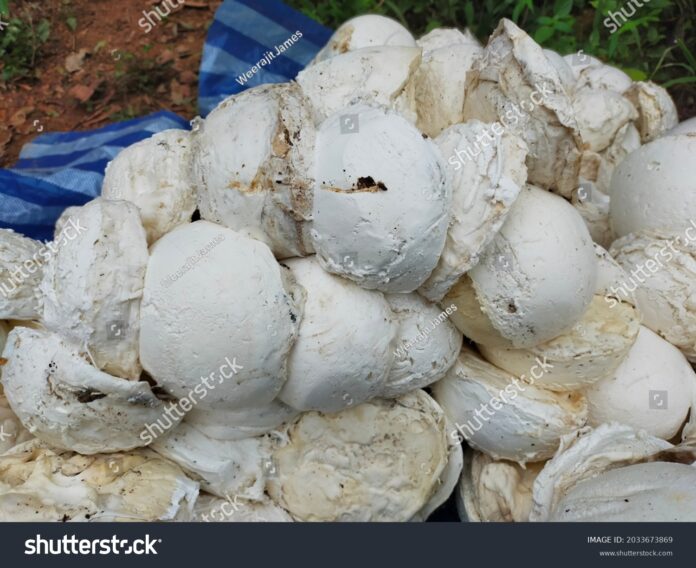The General Agriculture Workers Union (GAWU) of Trade Union Congress (TUC) has called on the government to immediately take steps to ban the export of Cup Lump (natural rubber) materials from the country.
In a story we have produced in this edition of The Chronicle, GAWU believes job losses are imminent if government policy allows for no restriction in the purchase and export of Cup Lumps.
The General Secretary of GAWU, Edward Kareweh, explained that government policy on the rubber industry, for instance, allowed for side buyers to openly purchase Cup Lump materials and export them without paying taxes, which is killing the rubber industry.
In that direction, GAWU has appealed to the government to take immediate steps to ban the export of the product in order to save the rubber industry, and also jobs.
The call by GAWU comes at a time the only rubber processing company in the country, Ghana Rubber Estate Limited (GREL), which has large swathes of rubber plantation, was struggling to gather Cup Lump materials to feed its 25 million euro factory, because of the activities of side buyers.
Cup Lumps are white material (latex) tapped from rubber trees and processed into semi product for export.
The Chronicle takes the call by GAWU serious and expects the government, through the Ministry of Trade and Industry, to urgently consider the call.
This is because, we cannot allow side buyers of Cup Lumps to export the material, when we do not have enough as raw materials to feed our factories, from where the state gets taxes, which help to create employment for thousands of its citizens.
Last year, for instance, GREL paid millions of Ghana Cedis in corporate taxes to the government.
It is as a result of the contribution of corporate institutions, in the form of payment of statutory taxes for the development of the country, that the government needs to protect investment of investors. We cannot allow hoodlums, in the name of open market, to engage in unhealthy business practices that go to affect others. Business must be competitively healthy, and anything short of that, calls for government’s quick intervention.
In denying the government the needed revenue in the form of taxes because of the actions of side buyers of the raw material, it is important that a policy on the export of Cup Lumps is given a second look.
If GREL is struggling to gather 113 tonnes of Cup Lump materials daily to process in order to keep the over 4,000 workers it employs, then there is no need to export the material. This is, because, we only export when we have excesses.
It is as a result of this that The Chronicle is associating itself with the call by GAWU to be taken serious to save GREL and other registered rubber companies from collapsing. However, we also think GAWU just calling on government to ban the material isn’t enough.
We will expect GAWU to follow up with a petition to the Ministry of Trade and Industry, outlining and explaining with data how the rubber industry is faring, and whether the State can allow the open export of Cup Lump materials without restriction.









